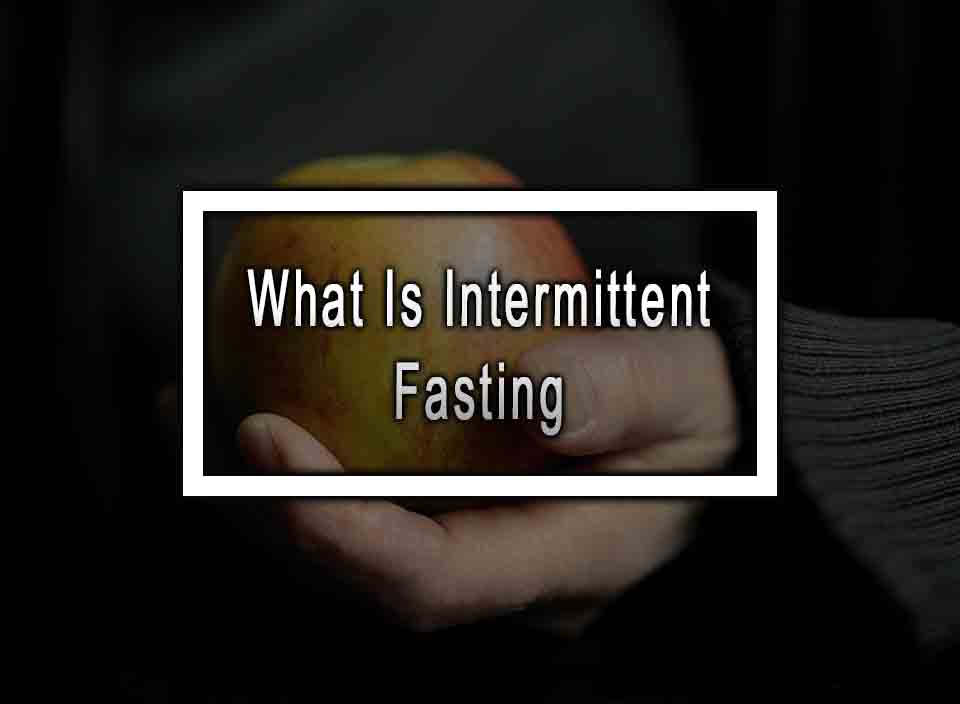What is intermittent fasting? Intermittent fasting is a lifestyle trend that has taken the world by storm. It involves cycling between periods of eating and fasting. People who fast in this manner have reported various health benefits besides weight loss. The diet has been popularized by many A-list celebrities in Hollywood, including Hugh Jackman, Jennifer Aniston, and Chris Pratt. However, despite its popularity, there can never be too much information on this diet plan. In this article, you will uncover everything about intermittent fasting, its different styles, health benefits, and risks.
What is Intermittent Fasting?
Intermittent fasting is a diet plan that emphasizes extended periods of restriction on calorie intake. During the fasting period, you eat very little or nothing at all, whereas, during the eating window, you consume your regular calorie intake. The science behind this diet is that taking extended breaks from food causes a switch in the body’s metabolic machinery. This makes the body switch from glucose metabolism, where it burns carbs to produce energy, to ketone metabolism, where the body burns stored fat to produce energy.
Intermittent Fasting Styles
There are several styles of intermittent fasting, including:
- 16/8 method: This is the most popular style of intermittent fasting. It involves restricting your eating to an eight-hour window and fasting for 16 hours. During the eating window, you can consume your regular calorie intake.
- 5: 2 fasting: This style involves eating regularly for five days a week and consuming only 500–600 calories on two non-consecutive days.
- Eat-stop-eat: This style involves a 24-hour fast once or twice a week.
- Alternate-day fasting: This style involves alternating between fasting and eating. On fasting days, calorie intake is reduced to 500–600 calories.
Health Benefits of Intermittent Fasting
What is intermittent fasting? Intermittent fasting is considered a healthy lifestyle choice by many because it promotes autophagy, a cellular cleanup process. It can also promote the elimination of damaged cells, which,, in the long run, helps prevent the development of diseases such as cancer and Alzheimer’s. The health benefits of Intermittent fasting include:
- Promoting Weight Loss: Intermittent fasting helps the body burn fat for energy by decreasing insulin levels. This lowers the body’s glucose level and promotes fat storage to burn for energy.
- Improve insulin sensitivity: Intermittent fasting can lower insulin levels, leading to increased insulin sensitivity.
- Boosting brain function: Fasting is believed to increase brain function by stimulating the production of brain-derived neurotrophic factor (BDNF), which promotes the growth of new brain cells and protects existing ones.
- Lower inflammation: Inflammation can lead to various chronic diseases such as heart disease, cancer, and diabetes. Intermittent fasting helps reduce inflammation, which can lead to better overall health.
Risks of Intermittent Fasting
Intermittent fasting is not suitable for everyone as it may have some risks and side effects. Some of the risks include:
- Hunger: During the fasting period, hunger may be experienced, which can be uncomfortable.
- Dehydration: Many people forget to drink enough water during the fasting period, leading to dehydration.
- Headaches: Headaches are a common side effect of intermittent fasting, especially for beginners.
- Overeating: Overeating can occur when the eating window opens, leading to weight gain instead of weight loss.
Conclusion
What Is Intermittent Fasting? Intermittent fasting is a lifestyle trend that has taken the world by storm. This diet plan has many benefits, including weight loss, improved insulin sensitivity, and increased brain function. However, it should be noted that intermittent fasting is not suitable for everyone, and it may cause some health risks and side effects. As with any diet plan, it is essential to consult a health professional before starting Intermittent fasting. Overall, Intermittent fasting is an effective way to improve overall health and lead a longer, healthier life.
Intermittent Fasting FAQs
Here are the most common questions about what is intermittent fasting.
1. Why do people try intermittent fasting?
Intermittent fasting has gained popularity due to its potential health benefits such as weight loss, improved insulin sensitivity, and increased lifespan.
2. How does intermittent fasting promote weight loss?
IF helps to restrict calorie intake by limiting the amount of time you have to eat every day. By consuming fewer calories than your body needs, you create a calorie deficit and thus lose weight.
3. Can you drink water during intermittent fasting?
Yes, it’s important to stay hydrated during the fasting periods, and drinking water is an excellent way to achieve that. You can also consume black coffee or tea during the fasting period.
4. What foods can you eat during the feeding periods?
While there are no strict rules about what to eat during the feeding periods, it’s essential to focus on nutrient-dense whole foods that provide satiety and nourishment. Lean proteins, complex carbohydrates, healthy fats, and low-glycemic fruits and vegetables are good options.
5. Is intermittent fasting safe?
Intermittent fasting is generally safe for healthy individuals. However, those with underlying medical conditions or a history of disordered eating should consult with their doctor before trying it.
6. What are some tips for getting started with intermittent fasting?
Start gradually, and select the IF method that works best for you. Stay hydrated, eat nutrient-dense foods during the feeding periods, and be consistent with your fasting routine. Finally, listen to your body and stop or adjust the IF plan if you experience adverse effects.












